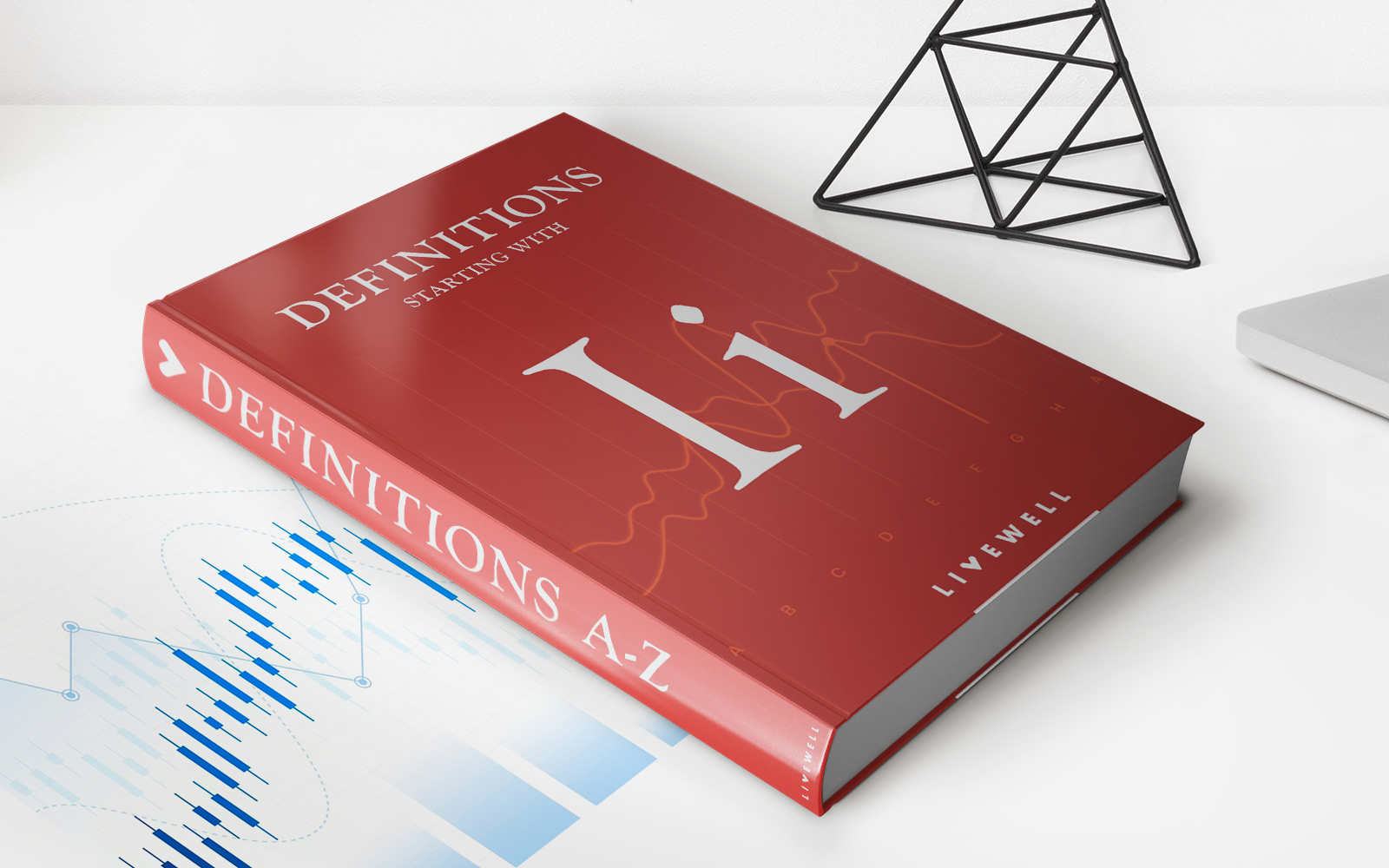

Finance
What Is Finance Charges In Credit Card
Modified: February 25, 2024
Learn what finance charges are in credit cards and how they can impact your overall balance. Understand the implications of finance fees on your financial health.
(Many of the links in this article redirect to a specific reviewed product. Your purchase of these products through affiliate links helps to generate commission for LiveWell, at no extra cost. Learn more)
Table of Contents
Introduction
Welcome to the world of personal finance! Whether you’re a seasoned pro or just starting your financial journey, understanding the concept of finance charges is crucial when it comes to managing your credit card debt effectively. While credit cards offer convenience and flexibility, they also come with a cost in the form of finance charges.
Finance charges are fees charged by lenders, such as credit card companies, for borrowing money or carrying a balance on your credit card. They are essentially the cost of using someone else’s money. It’s important to have a clear understanding of finance charges to make informed decisions about your credit card usage and to avoid unnecessary fees.
In this article, we will delve into the world of finance charges by exploring their definition, the types of charges you may encounter, how they are calculated, and the factors that can influence the amount you pay. We will also discuss the impact of finance charges on your credit cards and provide tips on minimizing these charges to save money in the long run.
So, whether you’re a credit card enthusiast or looking to upgrade your financial knowledge, let’s dive into the fascinating world of finance charges and unravel the mysteries behind these credit card fees!
Definition of Finance Charges
Before we dive into the intricacies of finance charges, it’s essential to understand what they actually are. In simple terms, finance charges are fees that lenders impose on borrowers for the privilege of borrowing money. When it comes to credit cards, finance charges are incurred when you carry a balance from one billing cycle to the next or when you make new purchases on your card.
These charges are calculated based on the annual percentage rate (APR) associated with your credit card. The APR represents the cost of borrowing money and is expressed as a yearly interest rate. Finance charges can vary depending on the terms and conditions of your credit card agreement and the outstanding balance you carry.
Finance charges can include a combination of fees, interest charges, and other costs associated with using credit. These costs may include:
- Interest on the outstanding balance
- Transaction fees, such as balance transfer fees or cash advance fees
- Annual fees or membership fees
- Late payment fees
- Over-the-limit fees
It’s important to carefully review your credit card agreement to understand the specific finance charges that apply to your card. Different credit card issuers may have different fee structures, so it’s crucial to be aware of the potential costs involved in your card usage.
Now that we have a clear understanding of what finance charges are, let’s explore the different types of charges you may encounter and how they are calculated.
Types of Finance Charges
When it comes to credit card finance charges, there are several types that you should be aware of. Understanding these different types will allow you to better comprehend the breakdown of the charges on your monthly statement. Here are some common types of finance charges:
- Interest Charges: Interest charges are the most common type of finance charge and represent the cost of borrowing money. These charges are calculated based on the annual percentage rate (APR) and the average daily balance of your credit card. The APR is often expressed as a yearly rate, but the interest charges are typically applied on a monthly basis.
- Transaction Fees: Transaction fees are charges that may be incurred for specific credit card transactions. Examples of transaction fees include balance transfer fees, cash advance fees, and foreign transaction fees. These fees are usually stated as a percentage of the transaction amount or a flat fee.
- Annual Fees: Some credit cards may come with an annual fee for the privilege of using the card. This fee is typically charged once a year and can vary depending on the type of card and the card issuer.
- Late Payment Fees: If you fail to make your minimum credit card payment by the due date, you may be charged a late payment fee. This fee serves as a penalty for not meeting your payment obligations on time.
- Over-the-Limit Fees: Over-the-limit fees are charged when you exceed your credit card’s assigned credit limit. These fees can vary depending on the card issuer and may be charged each time you go over the limit.
It’s important to note that not all credit cards will have these types of finance charges. The specific charges that apply to your card will depend on the terms and conditions outlined in your credit card agreement. Therefore, it is vital to carefully review your agreement to understand the potential finance charges you may incur.
Now that we understand the different types of finance charges, let’s explore how these charges are calculated.
How Finance Charges are Calculated
The calculation of finance charges can vary depending on the credit card issuer and the terms and conditions of your credit card agreement. However, there are generally two common methods used to calculate finance charges: the average daily balance method and the adjusted balance method.
1. Average Daily Balance Method: With this method, the finance charges are calculated based on the average daily balance of your credit card over the billing cycle. This method takes into account the balance at the beginning of the billing cycle, any new purchases, and payments or credits made during the cycle. By adding up the daily balances and dividing by the number of days in the billing cycle, the average daily balance is determined, and finance charges are applied based on this amount.
2. Adjusted Balance Method: In this method, finance charges are calculated based on the outstanding balance at the end of the billing cycle after any payments or credits have been applied. This method does not consider new purchases made during the billing cycle. It is important to note that this method can be more beneficial for cardholders who pay their balance in full each month as it excludes new charges from the calculation.
The actual calculation of finance charges involves multiplying the average daily balance or the adjusted balance by the monthly interest rate, which is derived from the annual percentage rate (APR). The resulting amount is the finance charge that will be added to your credit card statement.
It’s important to regularly monitor your credit card balance, payments, and statements to stay informed about the finance charges being applied. By understanding how these charges are calculated, you can take proactive steps to manage your credit card usage and minimize unnecessary fees.
Next, let’s explore the factors that can affect the amount of finance charges you may incur.
Factors Affecting Finance Charges
Several factors can impact the amount of finance charges you may incur on your credit card. Understanding these factors can help you anticipate and manage your credit card expenses more effectively. Here are some key factors that can affect finance charges:
- Outstanding Balance: The amount you owe on your credit card, also known as the outstanding balance, is a significant factor in determining finance charges. The higher the balance, the higher the potential finance charges. It’s important to pay attention to your outstanding balance and strive to pay it off or reduce it as much as possible to minimize finance charges.
- Annual Percentage Rate (APR): The APR is the interest rate charged by your credit card issuer for borrowing money or carrying a balance. Credit cards can have different APRs for different types of transactions, such as purchases, balance transfers, or cash advances. Higher APRs result in higher finance charges, so it’s important to be aware of the APR associated with your credit card and factor it into your credit card usage decisions.
- Payment History: Your payment history can also have an impact on finance charges. Late payments or missed payments can lead to late payment fees and may result in a higher APR, known as a penalty APR. Maintaining a good payment history by making timely payments can help you avoid additional fees and keep your finance charges as low as possible.
- Grace Period: Some credit cards offer a grace period, which is a specified number of days during which you can pay your balance in full without incurring any finance charges. If you have a grace period, it’s important to make the most of it by paying your balance in full before the grace period ends to avoid finance charges.
- Transaction Type: Different types of credit card transactions may have varying finance charges. For example, cash advances and balance transfers often have higher finance charges compared to regular purchases. It’s crucial to understand the finance charge structure for different types of transactions to make informed decisions when using your credit card.
It’s important to note that the specific terms and conditions of your credit card agreement, as well as your creditworthiness, can also impact finance charges. By paying attention to these factors and making informed decisions about your credit card usage, you can reduce the amount of finance charges you incur and save money in the long run.
Now that we understand the factors that can affect finance charges, let’s explore the impact of finance charges on credit cards.
Understanding the Impact of Finance Charges on Credit Cards
Finance charges can have a significant impact on your credit card usage and overall financial well-being. It’s crucial to understand the implications of these charges to make informed decisions and avoid falling into a cycle of debt. Here are some key points to consider regarding the impact of finance charges on credit cards:
Increased Debt: Finance charges can cause your credit card balance to grow over time, especially if you only make minimum payments. As finance charges accumulate, your debt can increase, making it even more challenging to pay off the balance in full.
Longer Repayment Time: Higher finance charges can extend the time it takes to pay off your credit card balance. If a significant portion of your payment goes towards finance charges instead of reducing the principal balance, it will take longer to become debt-free. This means more interest payments and potential additional fees over time.
Reduced Available Credit: As finance charges accrue, they add to your outstanding balance, reducing the amount of available credit on your credit card. This can impact your credit utilization ratio, which is the percentage of your available credit that you are utilizing. A high credit utilization ratio can negatively impact your credit score.
Financial Stress: High finance charges can lead to increased financial stress as you struggle to manage your credit card debt. It’s essential to have a realistic repayment plan and budget in place to ensure you can handle the added financial burden of finance charges.
Opportunity Cost: The money spent on finance charges could be used for other purposes, such as savings or paying down higher-interest debt. By minimizing finance charges, you free up valuable resources that can be utilized in more beneficial ways.
Understanding the impact of finance charges on credit cards is vital for maintaining healthy financial habits. By making timely payments, reducing your outstanding balance, and being cautious with credit card usage, you can mitigate the negative effects of finance charges and pave the way to financial stability.
Now, let’s explore some strategies for minimizing finance charges on credit cards.
Minimizing Finance Charges
To minimize the impact of finance charges on your credit cards, consider implementing the following strategies:
- Paying in Full and On Time: Paying your credit card balance in full and on time each month is the most effective way to avoid finance charges. By doing so, you can take advantage of any grace period offered by your credit card issuer and avoid accruing interest on your purchases.
- Making More than the Minimum Payment: If you can’t pay off your balance in full, make sure to pay more than the minimum payment required. Paying only the minimum will result in higher finance charges and prolong the time it takes to pay off your debt. Aim to pay as much as you can afford to reduce both the principal balance and the amount of interest charged.
- Transferring Balances: If you have credit card debt with high-interest rates, consider transferring your balance to a card with a lower interest rate or a promotional 0% APR offer. This can help you save on finance charges while you work on paying off your debt.
- Avoiding Cash Advances: Cash advances often come with higher interest rates and immediate finance charges. Try to avoid using your credit card for cash advances unless absolutely necessary.
- Managing Credit Utilization: Keeping your credit utilization ratio low can positively impact your credit score and potentially lower your finance charges. Aim to use only a small percentage of your available credit, ideally below 30%.
- Reviewing Credit Card Terms: Regularly review the terms and conditions of your credit card agreement to stay up-to-date on any changes in fees or interest rates. Understanding the specifics of your credit card can help you make informed decisions and avoid unexpected finance charges.
By implementing these strategies, you can reduce the amount of finance charges you incur and save money over time. It’s essential to be proactive and disciplined in managing your credit card usage to minimize unnecessary fees and maintain a healthy financial outlook.
Now that we have explored strategies for minimizing finance charges, let’s summarize the key points discussed in this article.
Conclusion
Finance charges play a significant role in credit card usage and can have a profound impact on your financial well-being. Understanding what finance charges are and how they are calculated is crucial in managing your credit card debt effectively. By being aware of the types of finance charges, factors that affect their calculation, and their impact on credit cards, you can make informed decisions to minimize their impact on your overall financial health.
We discussed that finance charges encompass various fees and interest charges associated with borrowing money or carrying a balance on your credit card. These charges can include interest on the outstanding balance, transaction fees, annual fees, late payment fees, and over-the-limit fees.
Finance charges are calculated using methods such as the average daily balance method or the adjusted balance method. The calculation is based on factors such as outstanding balance, APR, payment history, grace period, and transaction type. Being mindful of these factors can help you anticipate and manage finance charges more effectively.
The impact of finance charges on credit cards can lead to increased debt, longer repayment time, reduced available credit, financial stress, and missed opportunities. However, by implementing strategies like paying in full and on time, making more than the minimum payment, transferring balances, avoiding cash advances, managing credit utilization, and reviewing credit card terms, you can minimize the financial burden of these charges.
In conclusion, being knowledgeable about finance charges is essential when it comes to responsible credit card usage. By understanding these charges, actively managing your credit card debt, and making informed decisions, you can minimize finance charges and maintain a healthier financial life. Remember, the key is to be proactive, disciplined, and mindful of your credit card usage to avoid unnecessary fees and save money in the long run.














